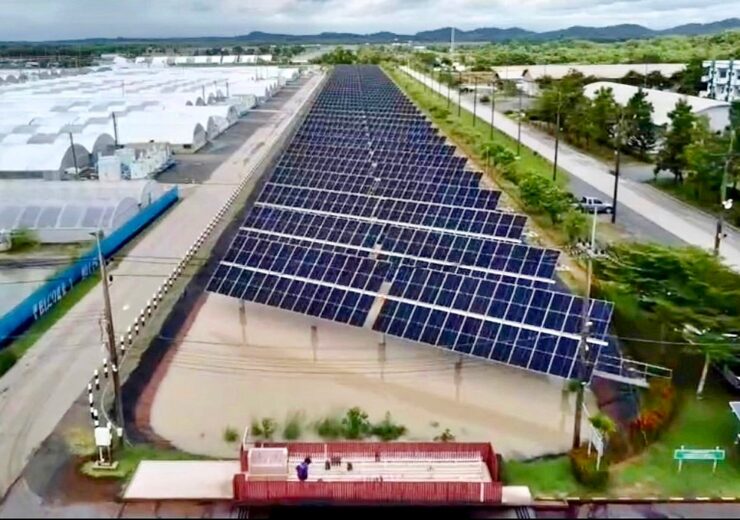Within 2030, CP Foods targets to raise revenue from green products by 40% as the current revenue from green products accounted for around 34% of the total revenue in 2022

The company expects to reach 100% sustainable packaging goal by 2025 for Thai businesses and by 2030 for overseas businesses. (Credit: Charoen Pokphand Foods PCL)
Charoen Pokphand Foods Public Company Limited (CP Foods) aims to achieve Net-Zero target by 2050 by establishing a clear roadmap of Smart Sourcing, Smart Production and Smart Consumption, embracing innovation and cutting-edge technology to increase efficiency and optimize production cost in a bid to reduce environmental footprint in sourcing, production, and consumption processes.
Peerapong Krinchai, Executive Vice President – Corporate Engineering at CP Foods, said, “the company has taken proactive strategies to reduce greenhouse gas emissions throughout the value chain, starting from Smart Sourcing, a responsible sourcing of agricultural raw materials. Under our policy, we only source deforestation-free materials to protect biodiversity. In production process, we are transitioning toward a Smart Production, improving productivity and efficiency by automation and digitization. Lastly, Smart Consumption, CP Foods strives to develop low-carbon products”
Within 2030, CP Foods targets to raise revenue from green products by 40% as the current revenue from green products accounted for around 34% of the total revenue in 2022, helping to reduce greenhouse gas emissions by 1.483 million tons of carbon dioxide equivalent per year.
Aside, the company also made significant progress on sustainable packaging commitment to achieve 100% sustainable packaging, all packaging will be recyclable, reusable, or disposable. So far, the implementation has been 99.9% completed. The company expects to reach 100% sustainable packaging goal by 2025 for Thai businesses and by 2030 for overseas businesses
Also, CP Foods has promoted the use of renewable energy. At present, CP Foods is among the top 5 food companies with the largest percentage of renewable energy used. 27% of the total energy consumption in CP Foods comes from renewable sources such as biogas, biomass and solar energy.
These green power sources enable the company to reduce total greenhouse gas emissions of 680,000 tons of carbon dioxide equivalent per year, equivalent to planting 73 million trees.
Peerapong said the company is the first Thai company that announces the target to phase out coal within this year. Biomass energy from wood chips has been used as a coal-replacement material, reducing GHG emissions by 190,000 tons CO2 equivalent per year.
He added “Innovations have played a critical role in net-zero effort. Biogas provides 70% of energy used in CP Foods Laying hen complex and 50% used in swine farms. Moreover, 65 megawatts of electricity will be generated from solar power within 2023. The company expects to attain 100-megawatts generation capacity by 2025.
Aside renewable power source, CP Foods is considering a potential to use “Green Hydrogen”. which is the future of energy and clean.
To achieve Net-Zero, CP Foods working committee on climate change has collaborated with Science Based Target Initiatives to launch a roadmap for reducing GHG footprint from operations worldwide, using 2020 as a base year.
Source: Company Press Release
